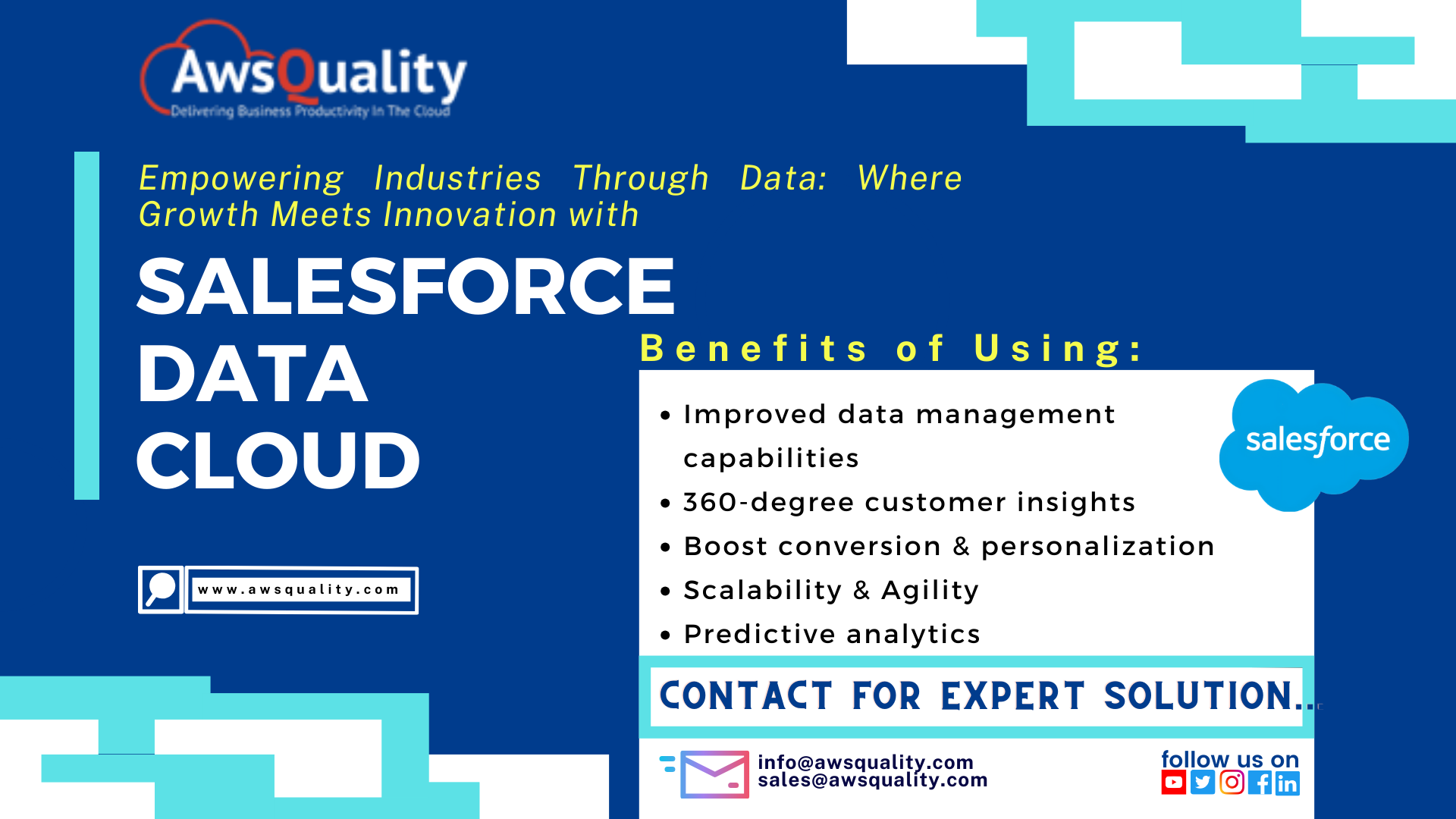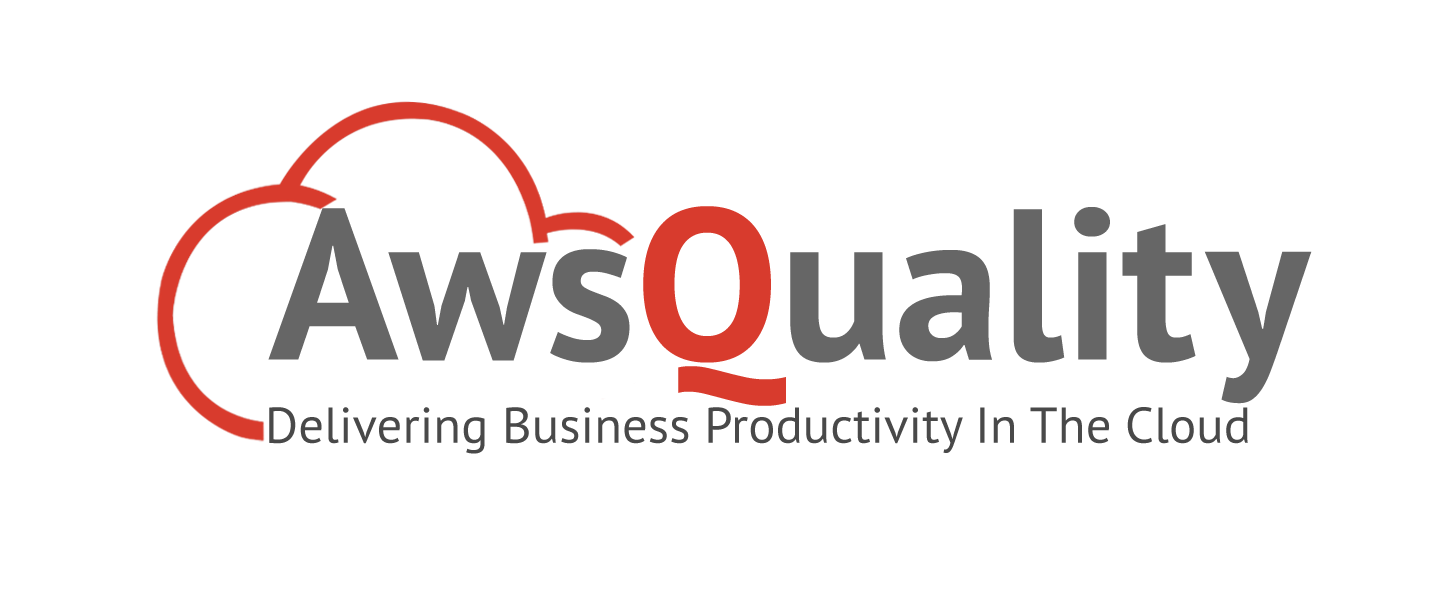
Salesforce Data Cloud: Elevate Operations, Personalize Experiences, & Drive Growth!
Salesforce Data Cloud, a dynamic ecosystem intertwining Salesforce Platform with highly scalable infrastructure, offers unparalleled opportunities for businesses across industries. Its robust capabilities, from scalability to AI-driven insights, empower organizations to enhance operations, personalize experiences, and foster growth. Leveraging Salesforce Data Cloud alongside Salesforce Service Cloud implementation partners and Salesforce Consulting Partner services ensures comprehensive solutions tailored to diverse business needs.
Salesforce Data Cloud: Boosting Scalability and Insights
Businesses rely on strong platforms to leverage the potential of data in today’s data-driven environment. Leading the way, Salesforce Data Cloud connects the Salesforce Platform to an extremely scalable infrastructure. Now let’s explore this amazing data platform’s nuances.
Salesforce Data Cloud: What Is It?
More than simply a repository, Salesforce Data Cloud is a dynamic ecosystem that blends the capacity required for near-real-time data processing with the agility of the Salesforce Platform. The following characteristics sum up its strength:
-
Scalability:
Petabytes of data, trillions of records, and thousands of queries per second per client are all possible with Data Cloud. Just consider the sheer size: 1,000 terabytes are equal to 1 petabyte, and 1,000 gigabytes are equal to 1 terabyte. It’s similar to piling up all of the storage on your first computer hundreds of times!
-
From Customer Data Platform (CDP) to Evolution:
Data Cloud was first created with marketers in mind, but its applications have since expanded. It can now handle more scenarios, which makes it a flexible answer for a range of business requirements.
-
Data Ingestion and Transformation:
Batch and streaming data sources may be easily connected to by Data Cloud. Data is ingested from external connections (Amazon S3, Google storage), APIs, and Salesforce products (Sales, Service, Commerce, and Marketing Cloud), among other sources. To guarantee accuracy, the data is transformed and cleaned before being used.
-
Harmonization and Standardization:
Diverse data sets may include jumbled information. The Customer 360 Data Model is a standard data model created by Data Cloud that unifies disparate data. Cross-functional insights are facilitated and consistency is ensured by this harmonization
-
Identity Resolution and Unification:
It’s crucial to resolve identities and unify data across channels. Data Cloud ensures a comprehensive view of consumers by doing this using identity resolution rulesets.
-
AI-Driven Insights:
Make use of AI to categorize audiences, forecast behavior, and design tailored experiences. You can expand, analyze, and take action on data across channels with the help of Data Cloud.
-
Continuous Optimization:
Once data is ingested and analyzed, the journey is far from over. To keep ahead of the curve, Data Cloud promotes ongoing assessment, measurement, and optimization.
How It Operates
-
Connect and Ingest Data:
Data Cloud creates a connection between external data sources and Salesforce. Data Cloud unifies all of the data—web interactions, mobile app data, and engagement data. It resembles building an intricate web of understanding.
-
Unify, Transform, and Analyze:
Now that the data has been combined and altered, it’s time to improve it even more. Utilize audience segmentation, tailored experiences, and behavior prediction powered by AI. There are a ton of options.
-
Act on Data:
Ata Cloud is about taking action rather than simply analyzing. Provide data through a variety of channels, such as targeted advertisements, email campaigns, and tailored suggestions. Data activation gives life to your business decisions.
-
Data transformation guarantees data consistency:
Model and transform data. Product orders, sales contacts, and anonymous online visitors are just a few of the various data points that Data Cloud unifies into the Customer 360 Data Model.
Salesforce Data Cloud is an enabler, not just a platform. It gives companies the ability to customize experiences, make well-informed decisions, & spur development. The solution to the data problems that have existed since CRM’s early days is Data Cloud, the fastest-growing internally developed product in Salesforce history. So, embrace data’s power—your company’s change is just around the corner!
Which Salesforce Data Cloud use cases exist in the real world?
Salesforce Data Cloud is a robust platform with adaptable uses across many industries. Exploring real-world applications:
Prospecting and Lead Generation:
Data clouds are used by businesses to find and acquire new leads and prospects. They are able to efficiently target potential clients by utilizing detailed data.
Marketing Based on Accounts (ABM):
Businesses use Data Cloud to collect extensive data on target accounts for ABM campaigns. This makes customized interactions and marketing campaigns possible.
Sales Knowledge:
Sales teams may gain important information from Data Cloud. Their ability to better comprehend the behavior, preferences, and pain points of their customers results in more intelligent sales methods.
-
Data Purification:
It’s critical to maintain accurate and clean data. Data cloud helps reduce mistakes and enhance decision-making by keeping and cleaning high-quality data.
-
Observance and Reduction of Risk:
Data clouds are used by organizations to guarantee adherence to data privacy laws. It assists in recognizing and controlling possible dangers related to data consumption.
-
Market division:
Businesses may divide up their clientele according to behavioral patterns, demographics, and other factors with the help of Data Cloud. Targeted marketing initiatives are fueled by this segmentation.
-
Marketing of Events:
Businesses are able to maximize their efforts in event marketing by utilizing data from Data Cloud. They are able to gauge the success of an event, target the appropriate demographic, and customize invites.
-
CRM stands for customer relationship management.
Adding Data Cloud integration to Salesforce CRM improves client profiles. It offers a 360-degree perspective of the client, facilitating improved interaction and service.
Recall that data clouds are about more than simply data; they are about altering enterprises, fostering growth, and opening up new insights.
Could you provide an example of a business that successfully used Salesforce Data Cloud?
Let’s examine a real-world example of Salesforce Data
Cloud was crucial in this:
- Mascoma Bank: Improving the Financial Wellbeing of Our Clients
The Problem
- The mutual bank Mascoma Bank has to deal with the difficulty of comprehending the requirements and preferences of its clients. Their goal was to raise the financial wellbeing of their clientele while simultaneously increasing operational efficiency.
The Resolution
Mascoma Bank used Salesforce Data Cloud, utilizing the Einstein platform in particular. This is how they succeeded:
- Data-Driven Insights: Mascoma Bank was able to obtain important insights by examining data from a variety of sources, including client interactions and financial activity. They were aware of the tastes, spending habits, and financial objectives of their clients.
- Personalized Experiences: Mascoma Bank tailored their services using the information they had gathered. They customized their contacts to match individual requirements, whether it was making timely advice or recommending appropriate financial products.
- Operational Efficiency: Mascoma Bank was able to simplify procedures thanks to the Einstein platform. Routine chores were mechanized, which decreased manual labor and increased productivity.
- Financial Wellness: In the end, Mascoma Bank’s initiatives helped to improve the financial wellbeing of its clients. By providing pertinent services and advice, they enabled clients to make wise choices.
Outcomes
- Enhanced Efficiency: The operating efficiency of Mascoma Bank significantly improved.
- Increased Customer Satisfaction: Higher customer satisfaction was a result of personalized experiences.
- Better Financial Well-Being: Clients profited from pertinent financial products and individualized guidance.
Mascoma Bank was able to generate a comprehensive image of its consumers thanks to Salesforce Data Cloud, which produced favorable results. Their success story serves as an example of how financial services may be transformed by data-driven insights.
Conclusion,
Salesforce Data Cloud emerges as an indispensable tool across industries, offering unparalleled insights and scalability. Whether it’s prospecting, personalized marketing, or enhancing operational efficiency, businesses benefit from its robust capabilities. With Salesforce Service Cloud implementation partners and Salesforce Consulting Partners, companies can leverage Data Cloud to streamline operations, elevate customer experiences, and drive growth effectively.




